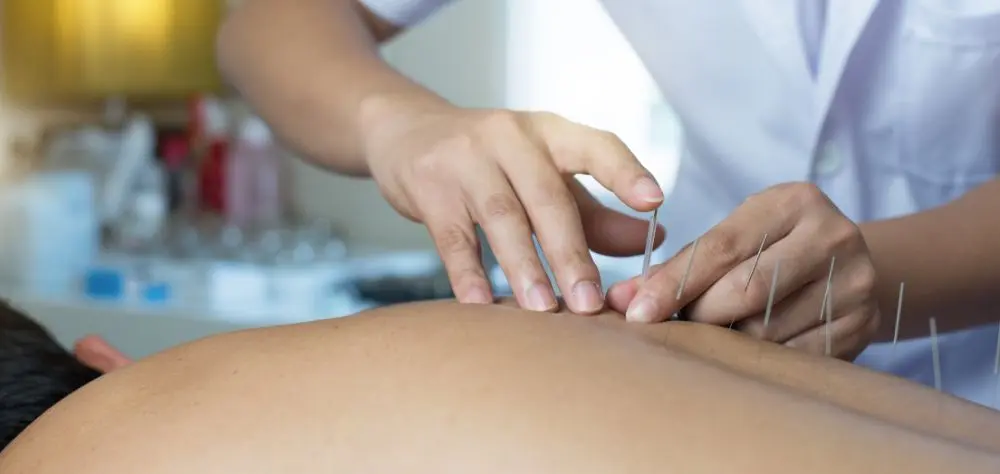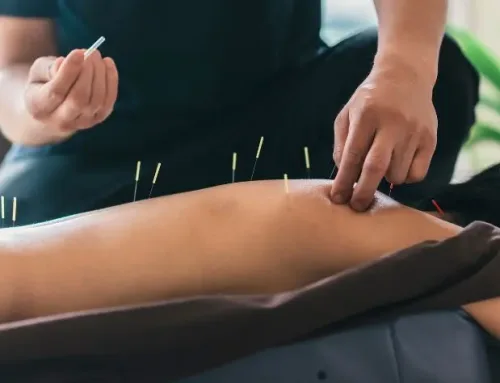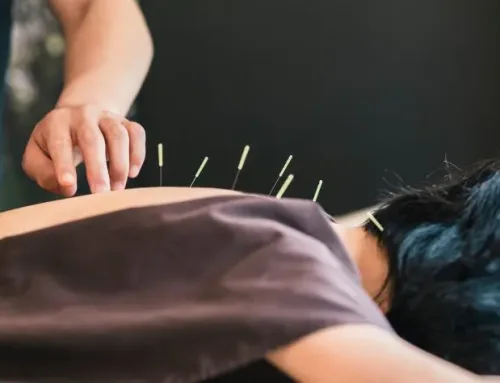Best Acupuncture Doctorate Programs: Schools, Career Paths & Requirements

More people are looking for ways to feel better without relying solely on prescriptions. That’s why interest in whole-person care and preventative health is growing fast—and acupuncture doctorate programs are playing a bigger role in meeting that demand.
Blending Traditional Chinese Medicine (TCM) with modern clinical practice, these programs train students to support patients in real, lasting ways. From hospitals to integrative clinics, acupuncturists with doctoral-level training are helping shape the future of healthcare. If you’re considering this career, keep reading to explore what top programs offer, how to meet admissions requirements, and the kinds of careers you can build with this meaningful degree.
Is a Doctorate in Acupuncture Right for You?
As more students explore acupuncture doctorate programs, it’s important to understand how they differ from master’s-level training—and what they offer in terms of clinical depth, career flexibility, and long-term impact in the field.
Understanding the Degree
A Master of Acupuncture and Chinese Herbal Medicine (MAcCHM) is the entry-level credential needed for licensure in many states. It provides the foundational knowledge and clinical training to begin practicing. A Doctor of Acupuncture and Chinese Herbal Medicine (DAcCHM), on the other hand, takes that training further—both in breadth and depth.
Doctoral programs expand your understanding of case complexity, biomedical science, and collaborative care. They often include advanced courses in diagnostics, pharmacology, research literacy, and systems-based practice. Some also offer electives in integrative specialties, clinical leadership, or education.
Who the Degree Is For
Students pursue acupuncture doctorate programs for different reasons. Some are first-time graduate students who want the most comprehensive education from the start. Others are licensed acupuncturists returning to deepen their expertise, gain new credentials, or prepare for leadership, teaching, or research roles. The doctorate provides options—and opens doors.
Career Paths with a Doctorate in Acupuncture
Graduates of acupuncture doctorate programs don’t just gain deeper clinical insight—they open the door to a wide range of career opportunities in both traditional and integrative care settings. Here’s where this advanced degree can take you.
Professional Paths for Doctorate Holders
A Doctor of Acupuncture and Chinese Herbal Medicine prepares you to practice at the highest level of licensure and step into leadership, education, or specialized roles in healthcare.
- Licensed acupuncturist in private practice, integrative health centers, community clinics, hospitals, or VA systems
- Specialist in areas like fertility, pain management, oncology support, or chronic illness
- Dual-trained provider, combining acupuncture with chiropractic, functional medicine, or massage therapy
Beyond Clinical Work
The doctorate also positions you for roles outside the treatment room. Many graduates teach in acupuncture colleges or lead continuing education workshops. Others become clinic directors, open multi-practitioner wellness centers, or contribute to clinical research in Traditional Chinese Medicine (TCM). The degree gives you the flexibility to grow your career in ways that align with both your expertise and your vision.
Core Requirements for Doctorate Programs in Acupuncture
If you’re exploring a doctoral path in Traditional Chinese Medicine, it’s important to understand what’s required—both to apply and to practice. Here’s a clear look at the core qualifications for acupuncture doctorate programs and what they mean for your future.
Education Requirements
Most acupuncture doctorate programs are designed for students who already hold a master’s degree in acupuncture or Chinese medicine. These students are often licensed and looking to expand their clinical depth, teach, or take on leadership roles.
Some programs, like ours at SCU, offer a direct-entry pathway for students with 90+ college credits, allowing them to earn a master’s and doctorate together through an efficient bridge format.
Accreditation and Licensure
Accreditation is essential. The program must be recognized by the Accreditation Commission for Acupuncture and Herbal Medicine (ACAHM) to ensure eligibility for national and state licensure.
- Graduates should qualify for the CALE (California Acupuncture Licensing Exam)
- They should also be eligible for NCCAOM board certification
Beyond graduation, licensure depends on passing these exams and meeting your state’s requirements. That’s why it’s worth looking into a program’s board prep resources and graduate licensure support—it matters when you’re launching your practice.
What to Look for in a Top-Tier Acupuncture Doctorate Program
Not all acupuncture doctorate programs offer the same level of depth, support, or flexibility. Whether you’re continuing your training or starting with a combined degree path, here are the core features that define a program truly worth your time.
1. Hands-On Clinical Training
Strong clinical experience starts early and is consistently supervised. You’ll want a program where patient care is integrated into the curriculum from the first year—not delayed until the final stages. Pay attention to where that training happens, too. The best schools place students in a variety of clinical settings—not just campus clinics—to help build confidence, adaptability, and cultural competence.
2. A Curriculum That Blends East & West
Advanced acupuncture training should go beyond classical foundations. Look for programs that teach diagnostic imaging, case documentation, lab values, and Western terminology. A well-rounded curriculum prepares you to speak the language of modern healthcare while staying grounded in Traditional Chinese Medicine.
3. Flexible Format Options
Many students in doctoral programs are balancing work, family, or both. Leading programs understand this and offer full-time, part-time, evening, or hybrid formats. Flexibility shouldn’t mean less engagement. You want structure, accountability, and active learning in every format they offer.
4. Support for Licensure and Career Launch
A great education doesn’t stop at graduation. Look for schools that offer strong board prep, practice management training, and post-grad mentoring. Whether you plan to open your own clinic or work within a hospital system, you’ll want a program that prepares you for both patient care and professional success.
Inside SCU’s Acupuncture Program: Practical, Powerful, and Purpose-Driven
At SCU, we train acupuncture students to think deeply, work skillfully, and practice with purpose.
We were the first university in the U.S. to offer an entry-level doctorate in Traditional Chinese Medicine—and we’ve continued to lead with a curriculum that blends classical training, integrative care, and modern clinical insight. Our doctorate in Acupuncture & Chinese Herbal Medicine reflects where healthcare is heading and gives students a strong foundation to meet that future with confidence.
Master’s + Doctorate = One Streamlined Path
Our programs are designed with flexibility in mind. You can start your journey in the master’s program and move directly into the doctorate by completing just 16 additional credit hours. No bachelor’s degree? No problem. Students with 90+ qualifying credits can enter directly, or begin with our Bachelor of Science in Health Sciences(BSHS).
Clinical Experience That Starts Early and Goes Deep
We believe clinical learning should begin early and stay consistent throughout your education. In year one, you’ll begin rotations at SCU Health Clinics, where we serve more than 40,000 patients each year. As your skills grow, you’ll have opportunities to rotate at a variety of external clinics—including CHOC (Children’s Hospital of Orange County), one of the only pediatric hospital placements available in U.S. acupuncture education.
Not Just Online—Immersive, Tech-Rich Learning
Our hybrid format uses modern tools to enhance, not replace, in-person training. Students work with:
- Complete Anatomy for dynamic, 3D learning
- SynDavers to practice soft tissue and muscle techniques
- Diagnostic imaging tools like X-ray and MRI simulation to bridge Eastern and Western diagnostics
You’ll stay engaged and challenged every step of the way.
A Curriculum Rooted in Whole-Person Healing
We don’t train students to chase symptoms—we teach them to understand the full picture. Our curriculum emphasizes mind-body connection, lifestyle, nutrition, stress, and community context. We combine the wisdom of TCM with the structure of biomedical science so our graduates can build care plans that are both comprehensive and personal.
Whether you’re just getting started or planning to expand your current credentials, our program offers a meaningful, well-supported path to becoming a confident, capable, and compassionate practitioner.
Training That Matches the Future of Healthcare
If you’re exploring acupuncture doctorate programs, it’s clear you’re looking for more than just a degree. You want advanced training, meaningful clinical experience, and a curriculum that prepares you to thrive in both integrative and independent settings. At SCU, we’ve built a program that meets you where you are—and takes you where you want to go.
From early clinical exposure to flexible entry points, from tech-enhanced learning to whole-person care, we’re here to support your growth at every stage. Take a look at our admission requirements and apply today.
FAQs
Can I go straight into acupuncture doctorate programs without a master’s?
Some schools offer bridge pathways or combined master’s-to-doctorate tracks for students with at least 90 college credits. Requirements vary, so check each program’s structure.
Do acupuncture doctorate programs include herbal medicine training?
Yes. Most programs that grant a DAcCHM include advanced coursework in Chinese herbal medicine alongside acupuncture and diagnostics.
Are acupuncture doctorates eligible for federal financial aid?
Yes, if the program is properly accredited. Always confirm with the financial aid office to understand eligibility, loan limits, and any scholarship opportunities.
How long does it take to earn both degrees at SCU?
Our master’s program can be completed first, then students can add the doctorate with just 16 additional credits—keeping the full timeline efficient and focused.
What kind of clinical training does SCU offer?
Students begin rotations early at SCU Health Clinics and later move into community partner sites, including CHOC (Children’s Hospital of Orange County).
Related Posts




